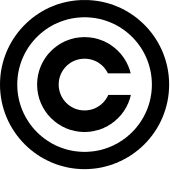When it comes to blogging online, there is a lot of effort that goes into how to improve the SEO of websites/articles, what to write about, how to write and much more. This is all good. However, before 
It must be noted that the laws between different countries can slightly differ from one another. Therefore, it is strongly recommended you also research the specific laws of your own country, and the country of those you interact with online.
Copyright
It is against the law to copy the content of another creator online, unless you have their explicit permission to do so. This includes content, images, audio, video and more.
Google also looks at copied copyright content very badly for whoever is doing it. With their algorithms, they can deduce who has copied content from who, and punish them with poor SEO. Therefore, you can look at this as two detrimental reasons to stick within the law.
Privacy – Cookies
It is important to understand that you cannot capture any information from the web user without their consent. This is exactly why it has become a law in Europe to have a pop-up allowing web users to consent or not-consent to allowing cookies to be used for X, Y and Z reasons.
Without such consent, you are not allowed to retrieve data from the web user.
Libel
It is not allowed by the law to post content of any nature that is untrue, and looks to damage the brand or reputation of a person or company. When this happens, you will have committed libel and be liable for the damages caused by committing such libel.
Trademark
A trademark is a word or symbol that is used to represent and identify a brand or company. It is used to protect the word/symbol from being utilized by others under the law. For example, all brands, such as Apple, will have a trademark on their name and symbol, so that other phone makers cannot use the name or symbol to gain extra sales.
For this reason, do not use any trademarked names at all, especially to your advantage. By doing so, you can get into big trouble, especially depending on how much damage you could have caused the brand or business with the trademarked word/symbol.




